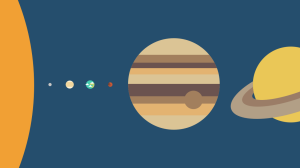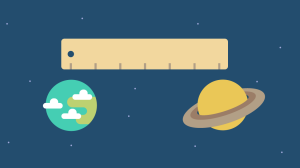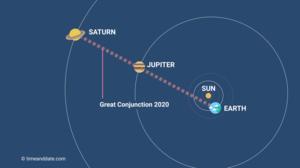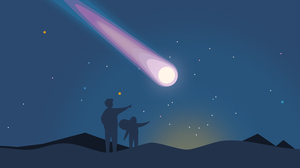13 hours, 7 minutes
Fri, May 31 at 4:58 pm – Sat, Jun 1 at 6:05 am
Visible night of May 31 – Jun 1, 2024
| Mercury: | From Sat 4:55 am |
|---|---|
| Venus: | From Sat 6:02 am |
| Mars: | From Sat 2:35 am |
| Jupiter: | From Sat 5:23 am |
| Saturn: | From Sat 12:05 am |
| Uranus: | From Sat 4:50 am |
| Neptune: | From Sat 12:52 am |
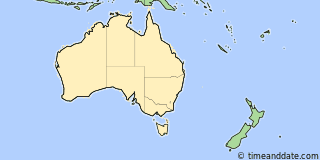
Shortest Lunar Month 2024
On average, it takes the Moon 29.53 days to cycle through all its phases. However, the lunar month starting at Third Quarter Moon on May 30 will last 29.19 days—around 8 hours and 10 minutes faster than average. Read the full story.
Our Interactive Night Sky Map simulates the sky above 21°49'23.8"S, 126°22'29.3"E. The Moon and planets have been enlarged slightly for clarity. On mobile devices, tap to steer the map by pointing your device at the sky. Need some help?
Tonight's Sky in 21°49'23.8"S, 126°22'29.3"E, May 31 – Jun 1, 2024 (6 planets visible)
Mercury rise and set in 21°49'23.8"S, 126°22'29.3"E
Fairly close to the Sun. Visible only before sunrise and/or after sunset.
Mercury is just 16 degrees from the Sun in the sky, so it is difficult to see.
Sat, Jun 1 ↑4:55 am
Time:
Altitude: °
Direction: °
Mars rise and set in 21°49'23.8"S, 126°22'29.3"E
View before sunrise.
Mars can best be seen in the hours just before sunrise. Visibility deteriorates as the sky gets brighter.
Sat, Jun 1 ↑2:35 am
Time:
Altitude: °
Direction: °
Jupiter rise and set in 21°49'23.8"S, 126°22'29.3"E
Fairly close to the Sun. Visible only before sunrise and/or after sunset.
Jupiter is just 9 degrees from the Sun in the sky, so it is difficult to see.
Sat, Jun 1 ↑5:23 am
Time:
Altitude: °
Direction: °
Saturn rise and set in 21°49'23.8"S, 126°22'29.3"E
View before sunrise.
Saturn can best be seen in the hours just before sunrise. Visibility deteriorates as the sky gets brighter.
Sat, Jun 1 ↑12:05 am
Time:
Altitude: °
Direction: °
Uranus rise and set in 21°49'23.8"S, 126°22'29.3"E
Very close to Sun, hard or impossible to see.
Uranus is just 16 degrees from the Sun in the sky, so it is difficult or impossible to see it.
Sat, Jun 1 ↑4:50 am
Time:
Altitude: °
Direction: °
Neptune rise and set in 21°49'23.8"S, 126°22'29.3"E
View before sunrise. Use binoculars.
Neptune can best be seen in the hours just before sunrise. Visibility deteriorates as the sky gets brighter. Very faint, use binoculars.
Sat, Jun 1 ↑12:52 am
Time:
Altitude: °
Direction: °
Planets Visible in 21°49'23.8"S, 126°22'29.3"E
| Planetrise/Planetset, Sat, Jun 1, 2024 | ||||
|---|---|---|---|---|
| Planet | Rise | Set | Meridian | Comment |
| Mercury | Sat 4:55 am | Sat 4:02 pm | Sat 10:29 am | Slightly difficult to see |
| Venus | Sat 6:02 am | Sat 4:54 pm | Sat 11:28 am | Very close to Sun, not visible |
| Mars | Sat 2:35 am | Sat 2:13 pm | Sat 8:24 am | Average visibility |
| Jupiter | Sat 5:23 am | Sat 4:20 pm | Sat 10:52 am | Slightly difficult to see |
| Saturn | Sat 12:05 am | Sat 12:27 pm | Sat 6:16 am | Average visibility |
| Uranus | Sat 4:50 am | Sat 3:52 pm | Sat 10:21 am | Extremely difficult to see |
| Neptune | Sat 12:52 am | Sat 12:59 pm | Sat 6:55 am | Very difficult to see |






